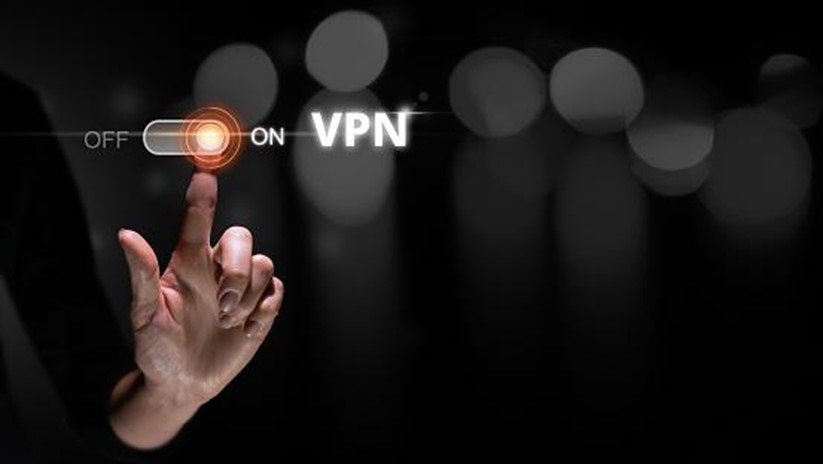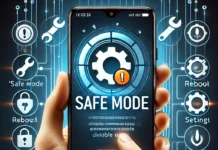
If you’ve been using the internet for any length of time, you’re already aware of virtual private networks. Otherwise known as VPNs, these networks offer a private and secure means of accessing the internet every day. Whether you’re using it at work, at home, or on the go, a VPN is ideal for safeguarding your data. Selecting a VPN provider can be a daunting task. There are so many from which to choose and all of them have different features.
VPN providers keep their offerings as competitive as possible so every one of them is going to be unique. So, it’s up to you to determine what works best for your needs. In this article, we’ll try to help you decide by highlighting a few ideal features to seek in your VPN service. Here are five features to look for in a VPN this year.
Encryption
Encryption is a common term when discussing privacy and security online. Encryption is the process of converting standard information and data into an indecipherable version. Unless the decryption code is available, the information is worthless to whoever receives it.
This is part of what makes VPNs such an amazing tool. Because data is such a valuable thing that companies will buy, sell and trade indiscriminately, it’s more important than ever to maintain your own privacy. A private and secure proxy VPN is the best way to keep yourself safe and private online. VPNS use encryption protocols to safely transfer data and encryption algorithms to protect personal slash financial/sensitive data.
That way, you can use the internet safely without worrying about your data falling into the wrong hands. When used in conjunction with an antivirus program, it’s a powerful tool. To keep you safe online.
Public Browsing
The internet is a universal and worldwide phenomenon. They can be used anywhere and anytime. Many people like to browse, work, or perform tasks while in public. When doing so, they must connect to a public Wi-Fi point. Unfortunately, Wi-Fi connections in public are not always secure and are vulnerable to man-in-the-middle attacks. Anybody can see what you’re doing. That means your privacy will be compromised. If you’re doing anything involving sensitive data such as paying bills or working on Financial accounts, you might as well write your bank account number on a big sign in front of your house.
Because that’s essentially what you’re doing when you use an unsecured public connection. Hyperbole aside, you must take precautions to ensure your safety while working online in a public space. Using a VPN can help protect personal information by establishing security protocols and encryption where there weren’t any previously. That means you can take control of your data in a public space and use public Wi-Fi without worrying about the deleterious consequences normally associated with it.
Unparalleled Content Access
Although they’re frequently used to protect online privacy and encrypt private data, VPNs are also helpful when it comes to accessing certain types of content. This practice is known as geoblocking. Geo-blocking restricts access to websites, programs, streaming services, and other online services based on location. A VPN routes traffic through other locations than where the original computer is located.
This makes other computers and networks believe that the visiting machine is located in their area. Watching the latest episode of your favorite show on a streaming service or accessing a website that’s restricted to certain countries is possible when using a VPN. Furthermore, VPNs protect from censorship and surveillance. According to the Electronic Frontier Foundation, a VPN obscures a user’s IP address and enables access to blocked websites in countries that normally censor the internet or online content (there are a lot more than one might suspect).
VPNs provide a secure and private connection allowing users to anonymously browse the internet without worrying about surveillance activity. That makes them an invaluable tool for everything from viewing global content to accessing more information on the web.
Web Protection
A VPN on its own is not going to protect you from web threats. Unfortunately, users are still at risk of Trojans, malware, and the like even if they use a VPN service. It isn’t an antivirus or anti-malware utility. It’s a privacy utility. There are, however, some companies that release VPNs with built-in web protection.
These are forward-thinking and unique programs that keep a finger on the pulse of what’s happening in today’s world. Such programs might incorporate web protection into their VPN service. This means it can help block malicious downloads (drive-by downloads), warn users about suspicious sites, and help prevent spam or phishing attempts. Not every VPN offers these features, but some options do.
As time progresses, it’s likely VPNs will improve their masking capabilities, employ built-in kill switches in the event of a breach, and offer more robust protection than ever before. For now, research the available options and decide if acquiring a VPN on its own and integrating it into your own software suite is the right option or determine if you want to obtain a more powerful VPN with built-in web protection. The choice is yours and will largely depend on your needs.
Number of Servers Around the World

Because of the way a VPN works, the number of servers that it has around the world is extremely important. There’s a good reason for this. The higher the number of servers, the faster the connection. Not only that, but more servers mean more reliability, which means more uptime. More uptime translates to more privacy and better encryption.
Having service located in different countries also helps with geo blocking and restrictions, allowing access to websites and content otherwise unavailable in your country. More servers also help reduce latency, which is a noticeable lag in the function of the VPN. When more people access a server, it tends to lag.
A higher quantity of servers in unique locations around the world can help ameliorate this problem and ultimately to a better experience. At the end of the day, choosing a VPN can be a challenge but hopefully, you are now equipped with the knowledge needed to make the best selection for you.

















